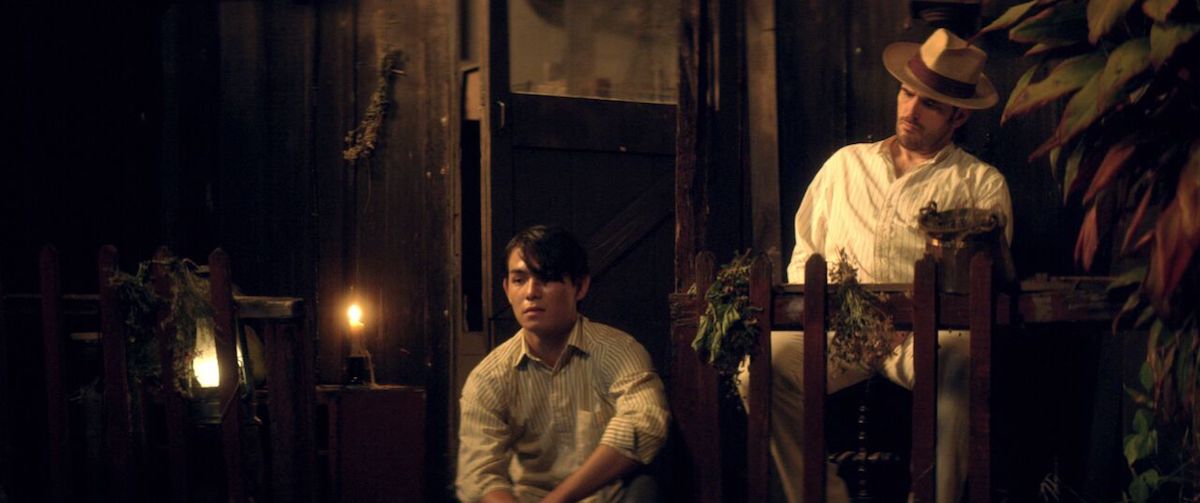Film Review: ‘Running for Grace’
By Joe Leydon
LOS ANGELES (Variety.com) – It’s difficult to offer a detailed synopsis of “Running for Grace” without making it sound like something adapted from a young adult novel of recent vintage. Not that there’s anything wrong with that, you understand, but this pleasantly well-crafted period drama actually plays more like a throwback to youth-skewing entertainment of an earlier era. Imagine a Troy Donahue-Sandra Dee teen romance of the early ‘60s with an inoffensive undercurrent of social consciousness, and you’ll have a good idea of what to expect from director David L. Cunningham’s thoroughly predictable but lightly enjoyable tale of love and prejudice in 1920s Hawaii.
During this period in the Kona Coffee Belt, the lines between Japanese immigrant laborers and members of the mostly-white power structure are rigidly maintained. Jo (played as a child by Cole Takiue), an orphan of mixed-race lineage, finds himself ostracized by both groups until Doc (Matt Dillon), a white doctor from the mainland, is hired as a physician for workers on the plantation owned by the autocratic — and, yes, you guessed it, racist — Danielson (Nick Boraine).
Doc unofficially adopts Jo (so-called “racial integrity laws” prevent his officially becoming the boy’s father) and employs him as a long-distance runner to deliver medicine to the coffee pickers. As Joe grows into young adulthood, and the role is assumed by Ryan Potter, Jo takes on additional responsibilities. He feels sufficiently competent to fill in for the absent Doc when Grace (Olivia Ritchie), Danielson’s lovely daughter, conveniently sprains her ankle. A house call sparks a mutual attraction.
Fortunately, Danielson doesn’t notice the budding romance, perhaps because he’s too preoccupied by the stress of his failing finances. Unfortunately, he plots to stave off bankruptcy through Grace’s marriage to another doctor, Reyes (Jim Caviezel), an aggressively charming poseur whose own solvency may be more apparent than real.
Working from a screenplay he co-wrote with Christian Parkes, Cunningham relies a tad too heavily on well-cast leads and supporting players to flesh out some sketchily drawn characters. But the actors are up to the challenge. Dillon is especially impressive in his ability to distract us from the fact that his character is defined entirely by what he does to keep the plot mechanics humming. (We aren’t told why Doc, whose competence is never in doubt, left whatever past he had behind to accept the Kona Coffee Belt job.) Juliet Mills conveys a lifetime’s worth of privilege and imperiousness with a minimum of dialogue as Danielson’s tart-tongued mother. And Caviezel zestfully serves generous slices of ham as the shady Reyes, a rogue with more than a passing resemblance to Billy Zane’s dangerous scoundrel in “Titanic.”
Potter and Ritchie are attractive and engaging, making it extremely easy for a viewer to develop a rooting interest in the fate of the young lovers. And for those who somehow remain immune to their charms, there is the irresistible attraction of spectacular Hawaiian scenery beautifully photographed by Akis Konstantakopoulos.
By the way, it would be a good idea to stick with “Running for Grace” until the very end of the closing credits. No, Samuel L. Jackson doesn’t show up to recruit Jo for the Avengers, but the final image is something even more satisfying.

